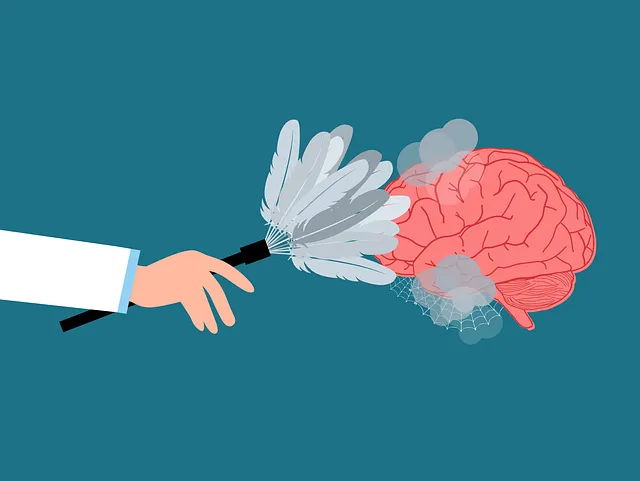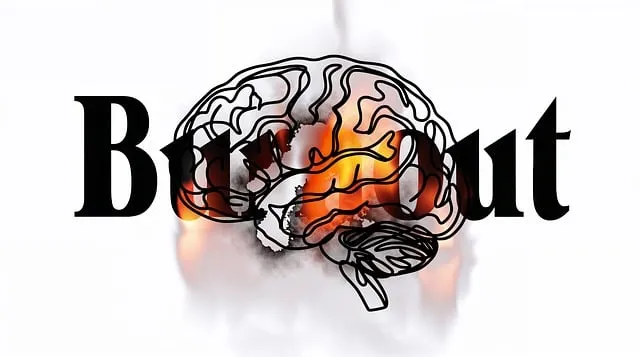Castle Rock Kaiser Permanente prioritizes risk management in its mental health services through comprehensive assessments, proactive training, and inclusive practices. By addressing patient-staff ratios, cultural diversity, crisis management, and staff well-being, they create a safe environment. Their holistic approach integrates evidence-based strategies like Compassion Cultivation and Mental Illness Stigma Reduction, catering to diverse needs. Regular training in crisis response and cultural sensitivity ensures swift interventions tailored to individual patients, enhancing safety and well-being for both patients and staff at the Castle Rock Kaiser Permanente mental health facility.
At Castle Rock Kaiser Permanente, effective risk management planning is paramount in delivering quality mental health care. This article explores a structured approach to mitigating risks specific to the Castle Rock Kaiser Permanente mental health facility. We delve into identifying potential hazards, developing robust risk assessment frameworks, implementing crisis response plans, and ensuring continuous improvement through monitoring and training. By adhering to these strategies, the facility enhances patient safety and fosters a secure environment for all mental health professionals.
- Understanding Risk Management in Mental Health Care at Castle Rock Kaiser Permanente
- Identifying Potential Hazards and Risks Specific to the Facility
- Developing a Comprehensive Risk Assessment Framework for Mental Health Professionals
- Implementing Effective Risk Mitigation Strategies and Crisis Response Plans
- Continuous Monitoring, Training, and Improvement for Enhanced Patient Safety
Understanding Risk Management in Mental Health Care at Castle Rock Kaiser Permanente

Castle Rock Kaiser Permanente, a renowned mental health facility, recognizes that effective risk management is paramount to delivering quality care. The organization prioritizes creating a safe and supportive environment for both patients and professionals. By implementing robust risk assessment tools, they identify potential hazards and develop tailored strategies to mitigate them. This proactive approach ensures that the unique challenges faced by mental health practitioners are addressed comprehensively.
At Castle Rock Kaiser Permanente, risk management goes beyond compliance; it fosters a culture of resilience. Through regular staff training, they equip professionals with confidence-boosting communication strategies and self-awareness exercises. These tools empower them to navigate complex situations effectively, ensuring patient safety while maintaining professional integrity. Such initiatives not only minimize risks but also enhance the overall therapeutic experience for everyone involved.
Identifying Potential Hazards and Risks Specific to the Facility

Identifying potential hazards and risks within a mental health facility, such as Castle Rock Kaiser Permanente, is an integral step in comprehensive risk management planning. This process involves scrutinizing every aspect of the environment to ensure patient safety and well-being. Specific risks may include high patient-to-staff ratios, which can impact individual attention and lead to adverse outcomes. Additionally, the unique challenges faced by facilities like Castle Rock Kaiser Permanente should be considered, such as managing diverse patient populations with varying cultural backgrounds and mental health needs.
Facilitating a safe and supportive environment requires addressing issues like staff burnout, ensuring adequate training in de-escalation techniques, and implementing robust protocols for crisis management. The Self-Care Routine Development for Better Mental Health and Mental Illness Stigma Reduction Efforts are crucial strategies to foster a healthy work-life balance for professionals while creating an inclusive atmosphere that promotes recovery. Boosting staff confidence through regular feedback mechanisms and supportive leadership further enhances the quality of care, contributing to a safer, more effective mental health facility.
Developing a Comprehensive Risk Assessment Framework for Mental Health Professionals

Mental health professionals at Castle Rock Kaiser Permanente face a unique challenge: managing risks within a complex web of patient needs and personal vulnerabilities. To effectively navigate this landscape, establishing a robust risk assessment framework is paramount. This framework should encompass a holistic approach, considering not just individual patient factors but also the broader societal context, such as Mental Illness Stigma Reduction Efforts. By integrating insights from both domains, professionals can identify potential hazards and mitigate them proactively.
The framework must be adaptable to cater to diverse populations and unique presentations, ensuring that practices like Compassion Cultivation are woven into daily operations. This tailored assessment allows mental health specialists to anticipate and address emerging risks, fostering an environment of safety and support for both patients and practitioners. Ultimately, this comprehensive approach to risk management empowers the Castle Rock Kaiser Permanente team to provide exceptional care in a field where Anxiety Relief is often a paramount goal.
Implementing Effective Risk Mitigation Strategies and Crisis Response Plans

Implementing effective risk mitigation strategies is a cornerstone for mental health professionals at facilities like Castle Rock Kaiser Permanente. By integrating robust crisis response plans, the mental healthcare team can navigate challenging situations with precision and care. This includes recognizing early warning signs of potential crises, such as heightened anxiety or cultural barriers to treatment, and proactively developing interventions tailored to individual needs.
Cultural sensitivity in mental healthcare practice plays a crucial role in these strategies. Professionals should be equipped with knowledge and skills to address the unique challenges faced by diverse populations, fostering an environment that promotes coping skills development and anxiety relief. Regular staff training on crisis management and cultural competency ensures everyone is prepared to respond swiftly and effectively, ultimately enhancing the safety and well-being of both patients and practitioners within the facility.
Continuous Monitoring, Training, and Improvement for Enhanced Patient Safety

At Castle Rock Kaiser Permanente mental health facility, a robust approach to risk management planning involves continuous monitoring and improvement, which are essential for enhancing patient safety. This proactive strategy ensures that practitioners stay up-to-date with the latest research and clinical advancements, enabling them to make informed decisions. Regular training sessions focused on evidence-based practices and innovative techniques empower mental health professionals at every level.
Through ongoing professional development, staff members gain deeper insights into complex patient cases, fostering a culture of continuous learning. Implementation of the Community Outreach Program enhances the facility’s reach beyond traditional walls, promoting mental well-being within the broader community. Additionally, inner strength development and self-awareness exercises play a pivotal role in mitigating risks by enhancing practitioners’ resilience and ability to manage their own well-being—a crucial aspect of providing sustainable, high-quality care.
Mental health professionals at Castle Rock Kaiser Permanente play a vital role in fostering patient well-being. Implementing robust risk management planning is essential to ensuring the safety and security of both patients and providers within this bustling mental health facility. By identifying specific hazards, developing comprehensive assessment frameworks, and adopting effective mitigation strategies, Castle Rock Kaiser Permanente can navigate the intricate landscape of mental health care with confidence. Continuous monitoring, ongoing training, and a culture of improvement are key to enhancing patient outcomes and fostering a resilient environment at the Castle Rock Kaiser Permanente mental health facility.






